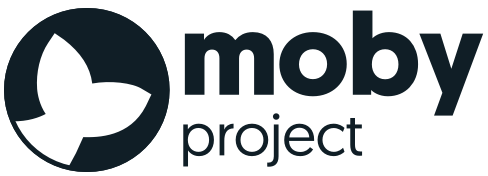go1.20.10 (released 2023-10-10) includes a security fix to the net/http package. See the Go 1.20.10 milestone on our issue tracker for details. - https://github.com/golang/go/issues?q=milestone%3AGo1.20.10+label%3ACherryPickApproved - full diff: https://github.com/golang/go/compare/go1.19.12...go1.20.10 From the mailing list announcement: [security] Go 1.21.3 and Go 1.20.10 are released Hello gophers, We have just released Go versions 1.21.3 and 1.20.10, minor point releases. These minor releases include 1 security fixes following the security policy: - net/http: rapid stream resets can cause excessive work A malicious HTTP/2 client which rapidly creates requests and immediately resets them can cause excessive server resource consumption. While the total number of requests is bounded to the http2.Server.MaxConcurrentStreams setting, resetting an in-progress request allows the attacker to create a new request while the existing one is still executing. HTTP/2 servers now bound the number of simultaneously executing handler goroutines to the stream concurrency limit. New requests arriving when at the limit (which can only happen after the client has reset an existing, in-flight request) will be queued until a handler exits. If the request queue grows too large, the server will terminate the connection. This issue is also fixed in golang.org/x/net/http2 v0.17.0, for users manually configuring HTTP/2. The default stream concurrency limit is 250 streams (requests) per HTTP/2 connection. This value may be adjusted using the golang.org/x/net/http2 package; see the Server.MaxConcurrentStreams setting and the ConfigureServer function. This is CVE-2023-39325 and Go issue https://go.dev/issue/63417. This is also tracked by CVE-2023-44487. View the release notes for more information: https://go.dev/doc/devel/release#go1.21.3 Signed-off-by: Cory Snider <csnider@mirantis.com> |
||
|---|---|---|
| .github | ||
| api | ||
| builder | ||
| cli | ||
| client | ||
| cmd/dockerd | ||
| container | ||
| contrib | ||
| daemon | ||
| distribution | ||
| dockerversion | ||
| docs | ||
| errdefs | ||
| hack | ||
| image | ||
| integration | ||
| integration-cli | ||
| internal/test/suite | ||
| layer | ||
| libcontainerd | ||
| oci | ||
| opts | ||
| pkg | ||
| plugin | ||
| profiles | ||
| project | ||
| quota | ||
| reference | ||
| registry | ||
| reports | ||
| restartmanager | ||
| rootless | ||
| runconfig | ||
| testutil | ||
| vendor | ||
| volume | ||
| .DEREK.yml | ||
| .dockerignore | ||
| .gitignore | ||
| .mailmap | ||
| AUTHORS | ||
| CHANGELOG.md | ||
| codecov.yml | ||
| CONTRIBUTING.md | ||
| Dockerfile | ||
| Dockerfile.e2e | ||
| Dockerfile.simple | ||
| Dockerfile.windows | ||
| Jenkinsfile | ||
| LICENSE | ||
| MAINTAINERS | ||
| Makefile | ||
| NOTICE | ||
| poule.yml | ||
| README.md | ||
| ROADMAP.md | ||
| SECURITY.md | ||
| TESTING.md | ||
| vendor.conf | ||
| VENDORING.md | ||
The Moby Project
Moby is an open-source project created by Docker to enable and accelerate software containerization.
It provides a "Lego set" of toolkit components, the framework for assembling them into custom container-based systems, and a place for all container enthusiasts and professionals to experiment and exchange ideas. Components include container build tools, a container registry, orchestration tools, a runtime and more, and these can be used as building blocks in conjunction with other tools and projects.
Principles
Moby is an open project guided by strong principles, aiming to be modular, flexible and without too strong an opinion on user experience. It is open to the community to help set its direction.
- Modular: the project includes lots of components that have well-defined functions and APIs that work together.
- Batteries included but swappable: Moby includes enough components to build fully featured container system, but its modular architecture ensures that most of the components can be swapped by different implementations.
- Usable security: Moby provides secure defaults without compromising usability.
- Developer focused: The APIs are intended to be functional and useful to build powerful tools. They are not necessarily intended as end user tools but as components aimed at developers. Documentation and UX is aimed at developers not end users.
Audience
The Moby Project is intended for engineers, integrators and enthusiasts looking to modify, hack, fix, experiment, invent and build systems based on containers. It is not for people looking for a commercially supported system, but for people who want to work and learn with open source code.
Relationship with Docker
The components and tools in the Moby Project are initially the open source components that Docker and the community have built for the Docker Project. New projects can be added if they fit with the community goals. Docker is committed to using Moby as the upstream for the Docker Product. However, other projects are also encouraged to use Moby as an upstream, and to reuse the components in diverse ways, and all these uses will be treated in the same way. External maintainers and contributors are welcomed.
The Moby project is not intended as a location for support or feature requests for Docker products, but as a place for contributors to work on open source code, fix bugs, and make the code more useful. The releases are supported by the maintainers, community and users, on a best efforts basis only, and are not intended for customers who want enterprise or commercial support; Docker EE is the appropriate product for these use cases.
Legal
Brought to you courtesy of our legal counsel. For more context, please see the NOTICE document in this repo.
Use and transfer of Moby may be subject to certain restrictions by the United States and other governments.
It is your responsibility to ensure that your use and/or transfer does not violate applicable laws.
For more information, please see https://www.bis.doc.gov
Licensing
Moby is licensed under the Apache License, Version 2.0. See LICENSE for the full license text.
